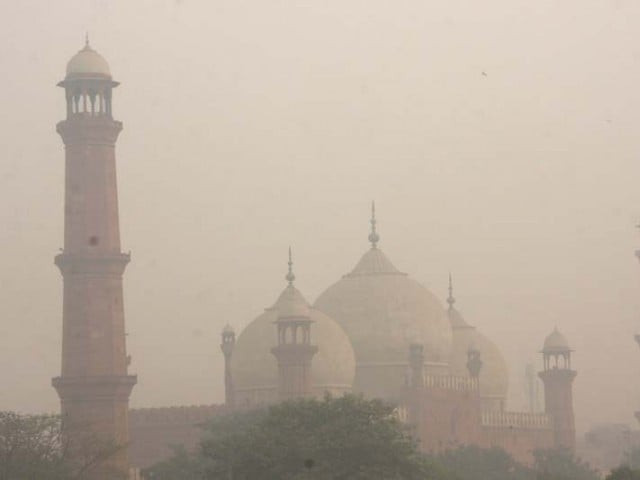Breathing toxins
Combine the inter-marriages with rising pollution, and we have an imminent human health disaster

Smog hangs in the air around Badshahi Mosque in Lahore. PHOTO: ABID NAWAZ/EXPRESS
The effects of our inhospitable environment are present around us. For measure, one might visit the neonatal ward of a government hospital or drive through a congested part of Karachi and observe the beggars that pound on car windows when stopped at a traffic light. Birth defects can be observed. Lenient policies have permitted inefficient vehicles to be imported to Pakistan. Mechanics continue using all means to repair cars that should have been retired decades ago. While smart consumers of the world look to purchasing Tesla models and hybrid vehicles, we continue to ignore the emissions from our vehicles that will impact our own future generations and the agriculture we consume. Although Punjab blames some of its smog on India’s industrial set-up sending pollution its way, it must first control the factors it can. A regional coalition against air pollution will be required, however, as both India and Pakistan have large industrial sectors. Otherwise, in addition to masks, Pakistani cities may soon, too, be needing canisters of air as currently sold in Beijing.
Published in The Express Tribune, November 7th, 2016.
Like Opinion & Editorial on Facebook, follow @ETOpEd on Twitter to receive all updates on all our daily pieces.













COMMENTS
Comments are moderated and generally will be posted if they are on-topic and not abusive.
For more information, please see our Comments FAQ